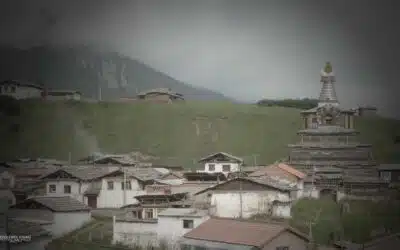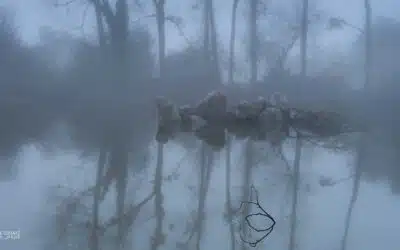Truth or Dare?

Written By Johanne Bernard
Blog | Daily Life Testimonials | Reflections on life | What about me?
In this article, “Truth or Dare?”, Johanne tells us about the difficulty of taking action, and its simplicity in Dzogchèn
« Truth or Dare? »
or The simplicity of action
Some of us may have played the “Truth or Dare” game as children or young adults? The principle of the game is simple: sitting in a group, each participant chooses either “Dare” or “Truth” in turn. If they choose “Dare”, they must do whatever is asked of them. If they chose “Truth”, they had to answer the question they were asked, whatever it was… I remember that only the most daring chose “Dare”, taking the risk of having to get naked in front of everyone, kissing their neighbors on the mouth, or ending up doing something really ridiculous. The majority, on the other hand, chose “Truth”, telling themselves that, in the end, they could always deal with the truth, since no one could verify it anyway…
Are actions more binding than words?… On a movie set, when the director yells “Action!”, that’s it: you have to go, the camera is rolling, there’s no turning back… In life, it’s a bit the same: action implies going straight to the point, with no room for negotiation. And maybe that’s what characterizes it: this setting in motion of our whole person, body and word, in a dynamic, immediate and concrete momentum.
Action… we often think about it, rather than do it. In fact, we’d love to get moving, carried along by this immediate impetus: jumping high, straight ahead, no matter the void beneath our feet…At our age, we no longer risk having to kiss our neighbor on the mouth, or to find ourselves naked in front of everyone… The only thing that can happen to us is to fulfill that dream we’ve had since childhood, to act for that cause we feel so strongly about, or to finally make a concrete commitment to what seems most essential to us…
“Nothing seems more difficult than returning to simplicity. Yet it’s available to everyone, because it’s the quality of our true nature. “
So what’s stopping us from taking action? Perhaps a world that has become so complex and ever-changing that it has become impossible to project ourselves. Fear, too, that invites itself in our lives and our daily routine, to such an extent that we feel as if we’re walking blindfolded, on a very unstable thread… ” Let’s all take shelter and wait for disaster to strike !”, we shout, just when we should be jumping!
Yes, it takes strength and courage to overcome our fears, to free ourselves from the ever-increasing amount of information, sometimes contradictory, often frigthening… Yet, it is in action that strength is drawn, that courage is found, like a kind of dynamo in a virtuous circle. So how do we go about it? Where to start? … By returning to simplicity, perhaps?
In our fast-paced lives, in the complexity of the world, returning to simplicity means, first of all, taking a moment: 1 minute, 5 minutes, 10 minutes, to take a break from the abundance of comments, whether they come from outside or from our own minds… A moment to look at those thoughts and emotions that agitate us, that prevent us from acting, and that we no longer even see. A time to let them pass like clouds in an empty sky, to let them settle like sand at the bottom of a river…
A time which, if repeated, will allow us to become more familiar with the way we work and to get to know ourselves better. A time in which we’ll soon discover, with amazement, that the basis of our mind is like the clarity of the sky and the limpidity of water: natural simplicity…
This is only the beginning, but it’s already a lot, because it’s in this state that we can glimpse the possibility of action. Tradition tells us: “No right action without clarity”. “No clear action in the confusion of thoughts and emotions”. For the Great Perfection, this is even the heart of the practice, and the essence: “Knowing how to liberate thoughts is the supreme form of action”, writes Yangthang Rinpoche, a twentieth-century Dzogchen master, in his “Short Presentation of View, Meditation and Action”.
Nothing seems more difficult than returning to simplicity. Yet it’s available to everyone, because it’s the quality of our true nature. In the natural simplicity of mind, the right action springs forth as a matter of course, and the fear of action gives way to the radiant joy of its unfolding… Remaining there, it is then finally possible to act, for oneself and for others.
More Posts
Diebu
In this article, “Diebu,” Mila Khyentse discusses the places of the lineages, particularly that of Diebu.
Be authentic!
In "Be Authentic!" Denis explores authenticity in the master-disciple relationship, a living space in which the nature of mind is recognized.
The First Day
In this article "The First Day", Mila Khyentse talks about the first day of the Tibetan year and what we usually do in a primordial way.




